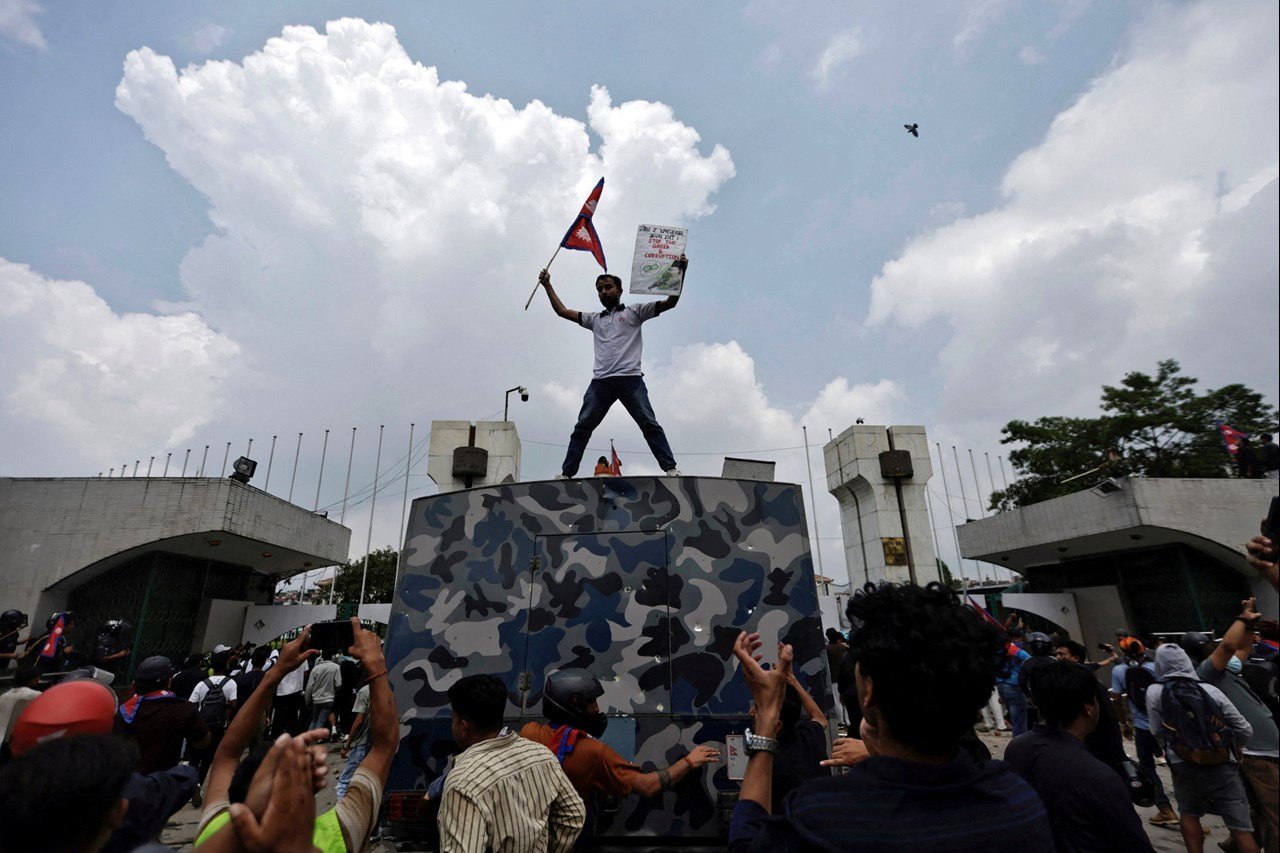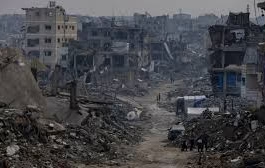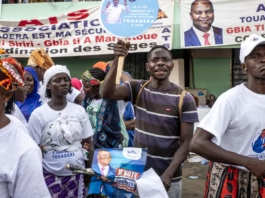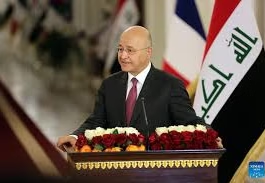Overview of the Situation in Nepal
Recently, Nepal has witnessed a significant surge in unrest, culminating in violent incidents that have drawn attention both locally and internationally. The causes of these tensions are deeply rooted in various socio-political dynamics, including economic disparity, ethnic tensions, and grievances regarding governance. Many citizens express dissatisfaction with the government’s ability to address pressing issues such as poverty, unemployment, and infrastructure development. This discontent has often manifested in protests and demonstrations, which at times have escalated into clashes.
One notable incident that exemplifies the current climate occurred in the capital city, where a peaceful rally organized by various community groups advocating for social justice turned violent. The police response, which included the use of force to disperse the demonstrators, only fueled the anger of the citizens, leading to further unrest. This highlights a significant concern about human rights and the government’s approach to dissent. Many argue that the authorities have resorted to heavy-handed tactics in managing public disorder, raising alarms among human rights organizations and advocates.
These developments not only impact immediate local populations but also signify broader implications for human rights and governance in Nepal. Issues such as the treatment of protestors, freedom of expression, and the rule of law are at the forefront of national dialogue. While some factions within the government urge for more stringent measures against dissent, others call for dialogue and restraint to restore peace. As tensions rise, it becomes increasingly vital for all parties involved to seek avenues for constructive dialogue, fostering an environment where the needs and rights of all citizens are acknowledged and respected.
The UN Secretary-General’s Perspective
In light of the escalating tensions in Nepal, UN Secretary-General António Guterres has articulated a strong plea for restraint and dialogue. His statement highlights the tragic loss of lives, expressing deep condolences to the families affected by the recent violence. Guterres underscored the need for a comprehensive investigation into these incidents, emphasizing that accountability is crucial for restoring trust in governance and ensuring that such tragedies do not reoccur. The Secretary-General’s commitment to international oversight suggests that impartial examinations can be invaluable in promoting stability within the region.
Moreover, the Secretary-General’s message serves as a reminder of the broader implications surrounding the unrest in Nepal. He recognized that sustained peace and security require not just local efforts, but engagement and support from the international community. By calling for an independent investigation, Guterres is advocating for transparency and the rule of law, principles that are essential for the healing process in any society faced with conflict. Furthermore, he highlighted the role of diplomatic dialogue as a means to facilitate understanding between various stakeholders, reinforcing the notion that constructive conversations can pave the way toward reconciliation.
The emphasis placed by Guterres on international oversight illustrates the recognition that, while local actors play a vital role in resolving disputes, broader institutional support is often necessary to achieve lasting peace. The presence of international observers can help reassure the population and signal a commitment to uphold human rights, encouraging a more stable environment. In conclusion, António Guterres’ perspective reflects a multi-faceted approach towards addressing the complexities inherent in the situation in Nepal, advocating not only for immediate measures but also for a sustained commitment to dialogue and cooperation.
The Importance of Restraint and Non-Violence
The current climate in Nepal underscores the pressing need for all parties to exercise restraint and commit to non-violence. Amidst rising tensions, the potential for unrest to escalate into violence is a significant concern. By prioritizing peaceful dialogue over aggression, stakeholders can chart a course toward resolution rather than confrontation. The principles of restraint are not merely strategic; they are rooted in the respect for human rights and the tenets of peace that govern any democratic society.
Continued unrest can lead to dire consequences, not only for those directly involved but for society as a whole. History has shown that violence often begets more violence, creating a cycle that is difficult to break. The resultant socio-economic instability affects all layers of society, particularly the marginalized. Therefore, recognizing the merits of non-violent advocacy is essential for fostering a stable environment conducive to dialogue and understanding. Community engagement through peaceful protest can highlight grievances while maintaining the moral high ground that is often lost in violent confrontations.
Non-violent movements have historically yielded greater societal change than their violent counterparts. Civil disobedience, strategic advocacy, and peaceful demonstrations serve not only as means of expressing dissent but as powerful tools for civil society. Encouraging communities to mobilize through non-violent means reinforces the message that demands for justice and change can be pursued in ways that respect the dignity of all individuals involved. Building alliances grounded in understanding, negotiation, and mutual respect can open pathways to resolving even the most entrenched disputes.
In discussions about the future of Nepal, emphasizing restraint and a commitment to non-violence can redefine how stakeholders engage with one another. The choice of dialogue over conflict is vital for the preservation of peace and the promotion of human rights, ensuring that every voice is heard and respected in the decision-making process.
Moving Towards Constructive Dialogue
Engaging in dialogue is critical for addressing the rising tensions in Nepal, providing a foundation for understanding and collaboration among various stakeholders. Constructive dialogue is not merely a means to an end; it is an essential process through which differences in perspectives and interests can be reconciled. By creating platforms for open conversation, stakeholders can not only express their grievances but can also seek common ground on issues that impact national stability.
Frameworks for such discussions must include a range of actors, incorporating grassroots organizations, political parties, civil society, and international mediators. To begin with, local actors can facilitate community dialogues, ensuring that the voices of diverse groups, including marginalized communities, are heard. Such inclusive platforms allow for the exchange of ideas and foster understanding between opposing parties. Additionally, international actors can play a vital role in this process by providing expertise and resources, and just as importantly, by acting as neutral facilitators who can help mediate conversations that might otherwise become contentious.
The ultimate objective of moving towards constructive dialogue is to create a more peaceful and cooperative environment in Nepal. This is essential for the long-term stability of the region. By focusing on shared interests, such as economic development, social cohesion, and improved governance, stakeholders can collectively envision a future that is inclusive and beneficial for all. Furthermore, by establishing ongoing mechanisms for dialogue, conflict will not only be addressed as it arises but will also be anticipated, enabling proactive rather than reactive strategies for resolving disputes.
In conclusion, fostering a culture of dialogue is indispensable for resolving the existing tensions in Nepal. It requires commitment and engagement from all levels of society, and by working together, stakeholders can contribute to a more harmonious future.




